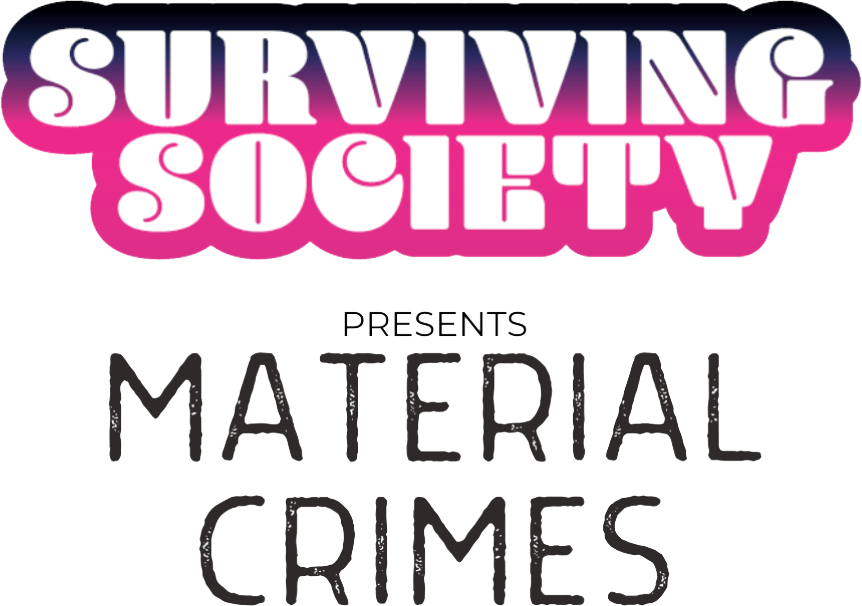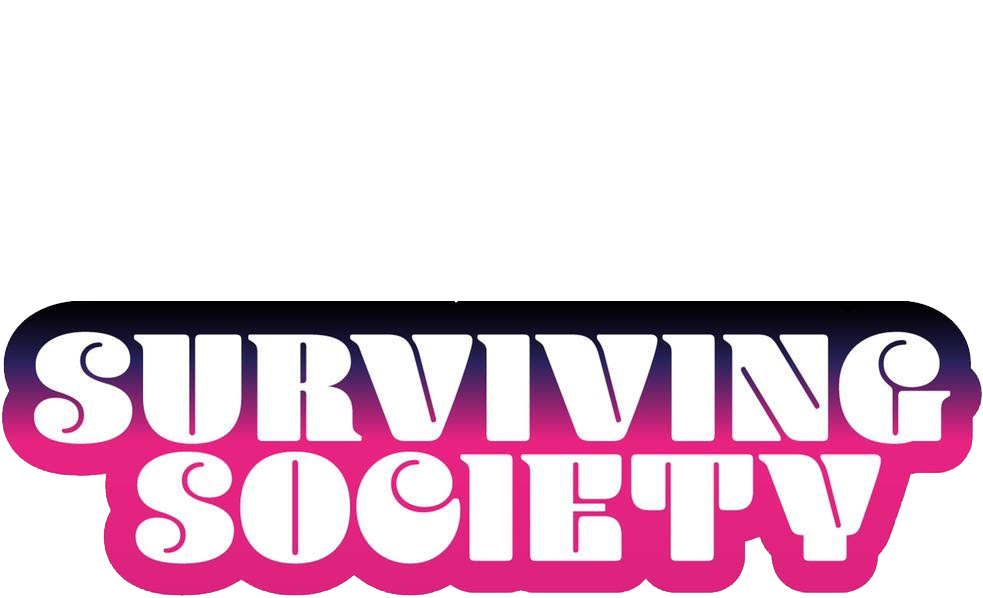How can infrastructure be criminal? How does a mine, a gas field, a suburban neighbourhood or a dam become a perpetrator of violence and insecurity? Surviving Society Presents: Material Crimes answers these questions. Each episode investigates a different piece of infrastructure, tracing its global, colonial connections across time and space. The series shows us how the physical sites of everyday life are linked to networks of private and public actors who profit from violence inflicted on spaces and communities on the margins. The series also shines a spotlight on the people-powered movements exposing and challenging the many crimes of infrastructure.
Season Two is out now. New episodes air every Tuesday until 15 October!
︎︎︎ About the Project
︎︎︎ A Guide to Making an Episode
For Season One click here
Season Two is out now. New episodes air every Tuesday until 15 October!
︎︎︎ About the Project
︎︎︎ A Guide to Making an Episode
For Season One click here
Sort by
A-Z
︎︎︎
Benedetta Zocchi is a border and migration researcher and a humanitarian development consultant. She holds a PhD in Political Science from Queen Mary University, where she wrote about border struggles and resistances in Bihac. Her work sits at the intersection of decolonial thinking and activist scholarship and she has contributed to several academic and advocacy projects across and beyond the Balkans.
Listen to Episode ︎︎︎
China Mills is Head of Research at Healing Justice Ldn and leads the Deaths by Welfare project, investigating deaths of disabled people linked to welfare reform and welfare state violence.
Healing Justice Ldn works for and with communities surviving state and systemic oppression, building towards futures rooted in dignity, safety and belonging. Their work is rooted in disability justice, aiming to build cross-disability and cross-movement solidarity, and create life-affirming systems with disabled people at their heart.
Listen to Episode ︎︎︎
Daniel is a geography teacher at a secondary school in London. He is also an educator and researcher with the London Mining Network, and a member of the Marikana Solidarity Collective.
Listen to Episode ︎︎︎
Eray Çaylı is a researcher and teacher of spatial politics and culture in Istanbul, London, Hamburg, and Amed. He regularly collaborates with Amed-based independent organisations such as the Architects' Chamber and the artist-run space Loading. His books include Victims of Commemoration: The Architecture and Violence of Confronting the Past (2022), Architectures of Emergency in Turkey: Heritage, Displacement, Catastrophe (2021), and Climate Aesthetics: Essays on Anthropocene Art and Architecture (2020).
Listen to Episode ︎︎︎
Mor is a Leverhulme EC fellow at the department of Geography, University of Sheffield. Her research examines spaces of dissent and the politics of art in Israel/Palestine since the 1970s. She's currently based in Manchester.
Listen to Episode ︎︎︎
Namir Shabibi is a visiting lecturer and doctoral candidate at Westminster University, researching covert paramilitary action in the “War on Terror.” He also leads the University’s Working Group on Telecoms, Spyware and Surveillance. As an investigative journalist, Namir has published reports for the BBC, the Bureau and VICE, among others, and now regularly contributes to Declassified UK. He previously worked for Reprieve, and the International Committee of the Red Cross in Darfur and Guantánamo Bay.
Listen to Episode ︎︎︎
Nicky Falkof is an Associate Professor of Media Studies at Wits University in Johannesburg. She is the author of The End of Whiteness: Satanism and Family Murder In Late Apartheid South Africa (2017) and Worrier State: Risk, Anxiety and Moral Panic in South Africa (2022), and co-editor of Anxious Joburg: The Inner Lives of a Global South City (2020) and Intimacy & Injury: In the Wake of #MeToo in India and South Africa (2022).
Listen to Episode ︎︎︎
Paul Robert Gilbert is a Senior Lecturer in International Development at the University of Sussex. This episode was made possible by those whose voices can be heard in this episode, as well as conversations with members of Bangladesh Environmental Lawyers Association, Bangladesh Working Group on Ecology and Development, and the National Committee to Protect Oil, Gas, Mineral Resources, Power & Ports.
Listen to Episode ︎︎︎
Sharri is a Senior Lecturer in International Politics at Queen Mary University of London. Her work, which is anchored in the political terrain of Palestine and the Israeli state, focuses on the materiality (and mobility) of colonial relations and the struggles that reveal and challenge them. She has written extensively about anti-colonial movements, settler colonialism, border technologies and the violence of infrastructure, in Palestine and beyond. But at the core, she just loves to tell stories.
Shereen is an academic at LSE and researches the legal geographies of the War on Terror and its impacts on Muslim communities globally. She has a PhD from Queen Mary University which examined the impacts of the Prevent Duty and fundamental British values requirement on teachers and Muslim parents in London. Her recent projects include a collaboration with the organisation Maslaha on the securitisation of Muslims in Britain and she has written extensively about the global impacts of counter-extremism and counter-terror strategies on marginalised communities. Shereen can be found on Twitter at

